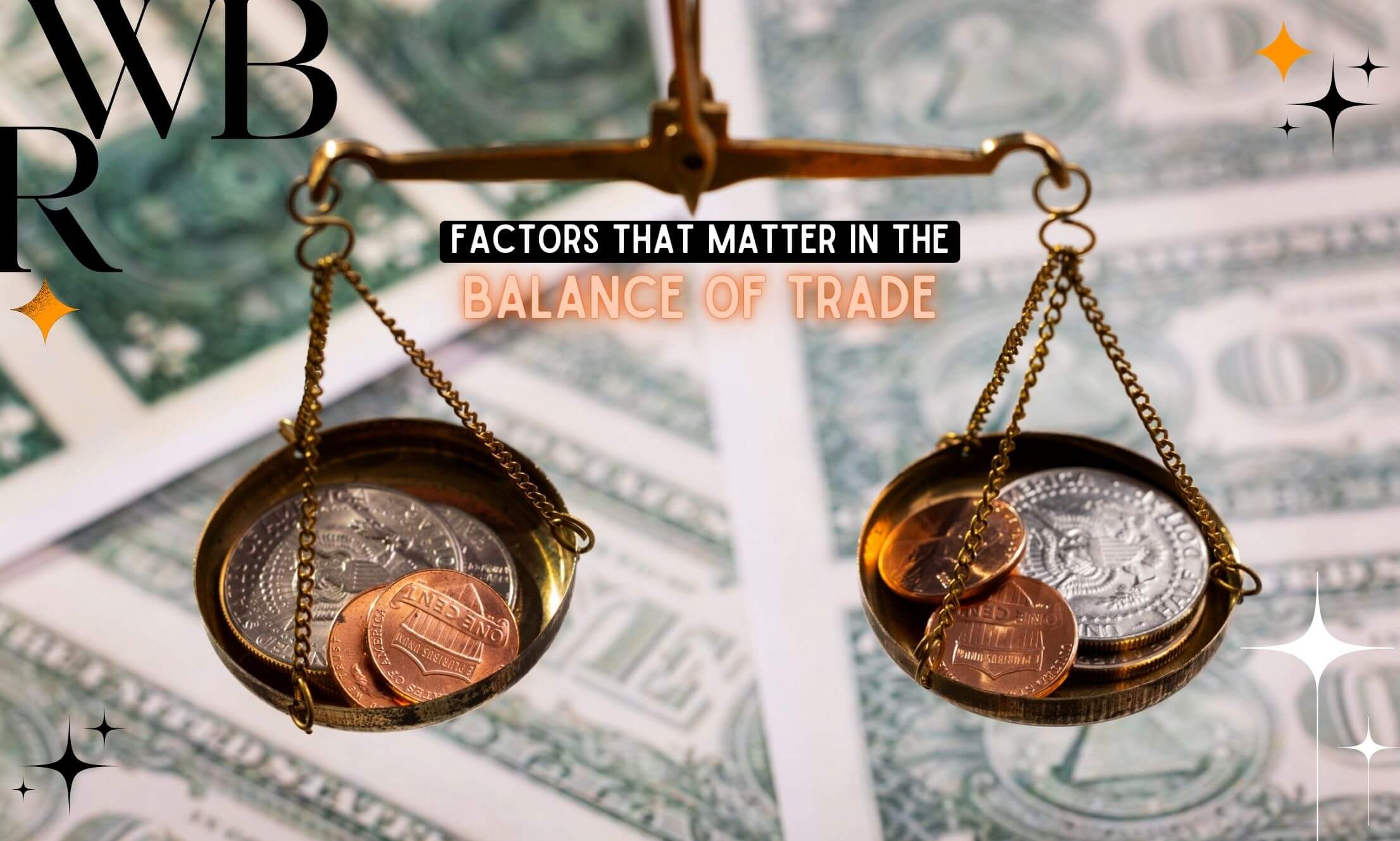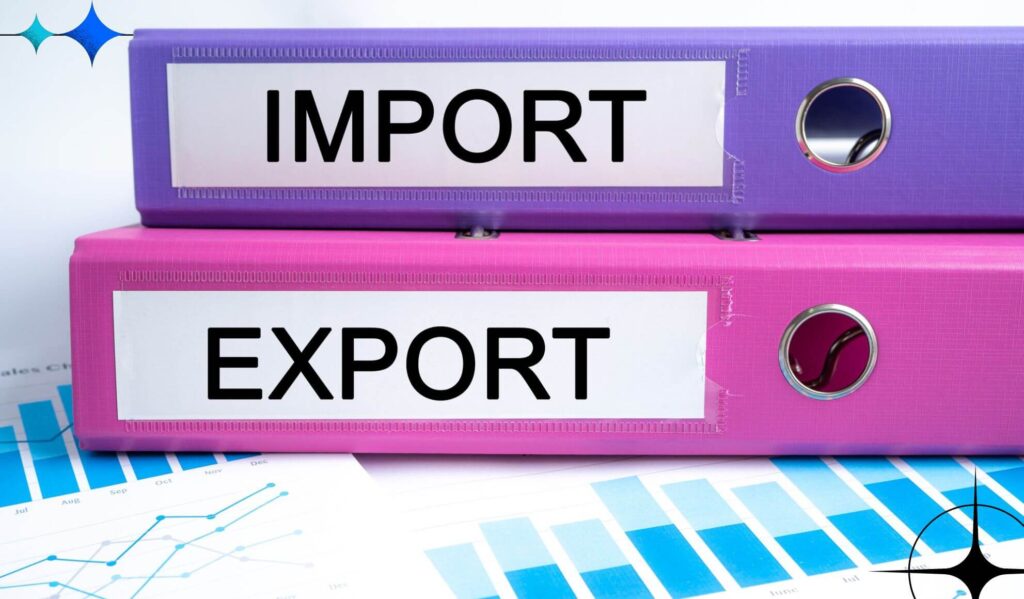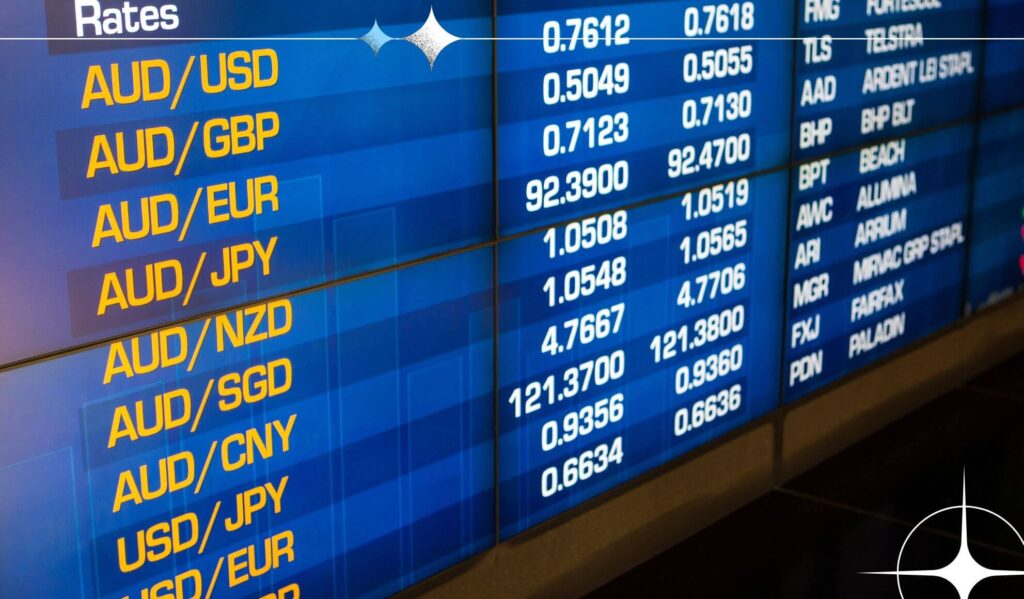Factors That Matter In The Balance Of Trade Of A Country: A Complete Guide
by Barsha Bhattacharya Finance 01 April 2025

The next export of a country defines the balance of trade of a country. By net export, we refer to net exports, meaning the amount you get after deducting the total import from the total export of a country.
As a result, a lot of factors can impact the trade balance of a country. The factors that impact the balance trade are endowment and productivity, exchange rates, inflation, foreign currency reserves, trade policy, demand, and inflation.
In this context, you must know that goods and services both are included when counting imports and exports. So, it is also known as the merchandise trade balance.
A nation experiences a deficit in trade balance when the imports are higher than the exports. On the other hand, when the exports are higher than the imports, it is known as trade surplus.
What Is A Balance Of Trade?

As mentioned, the balance of trade of a country is its net export. The net export means the total export of the country minus the total import of the country.
So, the trade balance formula is = Total Export – Total Import.
Further, the balance of trade constitutes a large component of the balance of payments for a country. Moreover, sometimes, the balance of trade for goods is calculated differently from the balance of trade in services.
What Are The Factors That Impact The Balance Of Trade Of A Country?
There are many factors that impact the balance of trade of a country. Let’s discuss them in detail.
1. Endowment

Endowments or factor endowments include many factors, including capital, land, and labor. Land refers to a country’s natural resources, including natural gas, oil, and timber.
Labor, on the other hand, refers to the quality of the workforce, and capital means the production capacity of the country and the infrastructure it has.
The Heckscher-Ohlin model explains how the factors of labor, land, and capital can yield a comparative advantage or disadvantage for a country’s balance of trade.
2. Trade Policies

The exports and imports of a country rely heavily on trade policies. For example, when the trade policies of a country subsidize the export goods and charge higher duties or restrict imports, the balance of trade will be impacted.
For example, if a country imposes import quotas, the prices of the imported goods will go up. As a result, people in the country will be less willing to buy imported products.
On the other hand, if a country offers a subsidy on agricultural production, farmers will get the encouragement to produce more for exports.
3. Demand

In international trade, the demand for a particular product or service is the defining factor. For example, if the demand for mineral oil shoots up globally, that will impact the trade balance of the countries that import or export oil.
In this context, even if an oil-importing company fails, the impact will be on the overall oil trade balance.
However, if a particular good is of lesser importance to a country and the price still shoots up, the exporter will face a challenge in exporting their good. As a result, the trade balance report will be impacted.
4. Exchange Rates, Inflation And Foreign Currency Reserves

Exchange rates, foreign currency reserves and inflation massively impact the balance of trade of a country.
With the appreciation of a country’s currency, the country will pay less than before for all its imports and earn more with its exports. The scenario will be entirely different with the depreciation of the currency.
Again, the inadequacy of foreign reserves can limit access to international amenities and equipment for production.
Moreover, when a country faces inflation, the production value for each unit of the product will be higher. So, in the competitive global market, a country with a low inflation rate will have an edge in exporting its products.
Thus, the balance of trade is impacted in a country facing inflation.
5. Technological Advancements

Technological advancements can impact the ability of a country to produce more goods and services. Further, with the advancement of technology, a country can diversify its businesses.
It can also make progress in digitalization, supply chain management, and resource optimization.
6. Natural Resources

The natural resources a country has or the land of a country can massively impact the balance of trade of a country. The natural resources of the country include its agricultural products, oil, gas and other mineral products.
All of these products can add substantial value to the overall export revenue of a country. Again, resources such as natural oil and gas are important to keep the production landscape of the country and logistics afloat.
7. Economic Conditions In The World

The economic conditions of the world play a critical role in the balance of trade of a country. Global demands, economic trends, exchange rates and growth rates are some of the major economic conditions in the world that influence the balance of trade of a country.
8. Demographics

When a country has a large population, it also has a large consumer market. So, there will be a higher demand for domestic and international consumer goods.
Again, when a country has a larger population, it will have more skilled and unskilled labors to boost domestic production and impact the balance of trade positively.
Final Words
Balance of trade is very significant for the economy of a country. When a country exports more goods and services than the goods and services it imports, there will be a trade balance surplus. However, when the reverse happens, there will be a trade balance deficit.
Now, when a country has a positive net export import, it positively impacts the job creation, economy, and foreign exchange reserves of a country.
On the other hand, if there is a deficiency in trade balance, a country will experience economic imbalances. There will be a drop in foreign exchange reserves and an increase in borrowing.
Moreover, the balance of trade impacts the currency value of a country. The currency of a country is appreciated when there is a trade surplus. Similarly, a trade deficit can lead to currency depreciation.



































































































